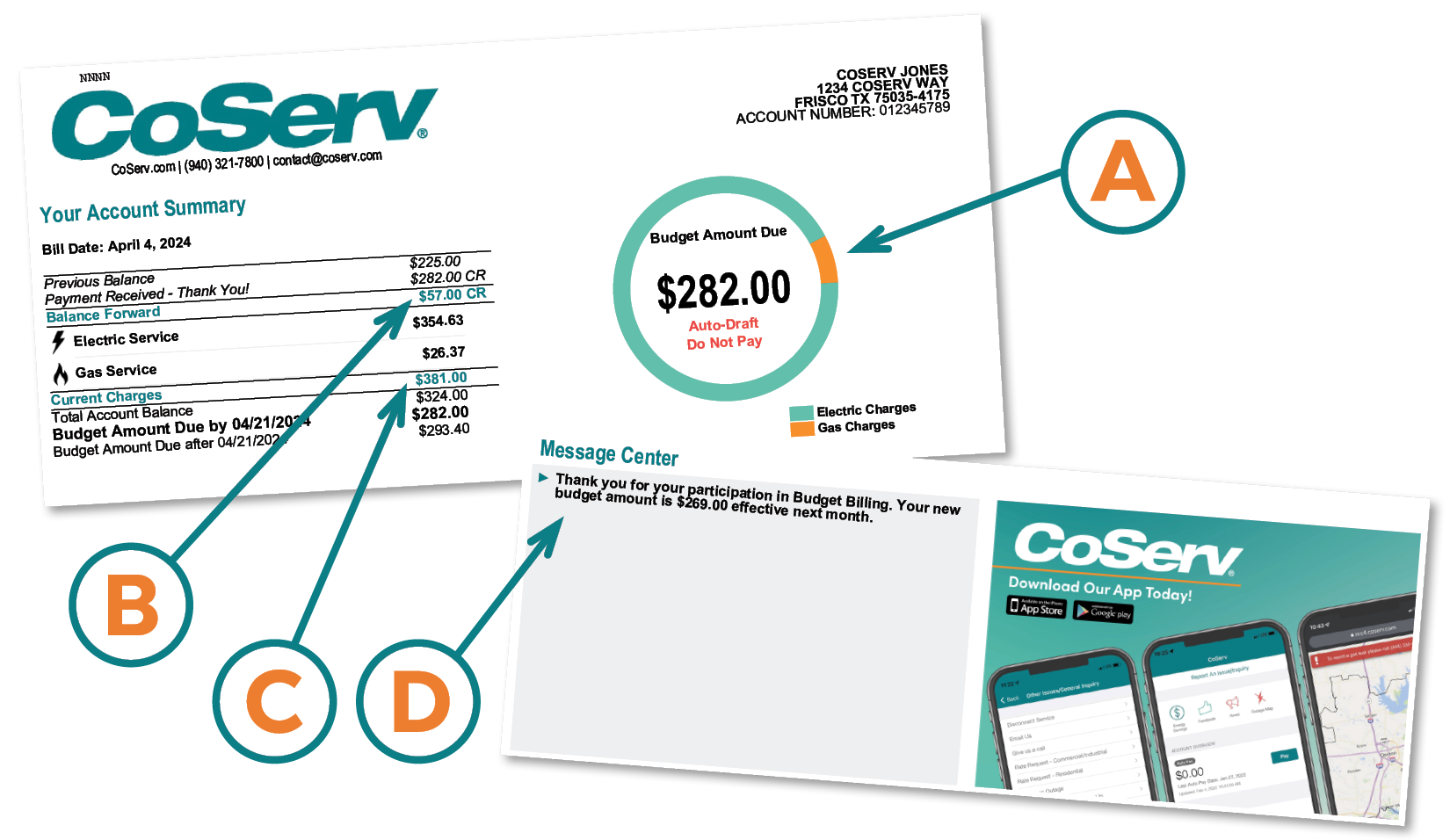Recalculation coming for Fixed Budget Billing


April is a budget billing recalculation month for those on the Fixed Budget Billing plan.
With Fixed Budget Billing, the bill is the same every month for six months, providing consistency and predictability through extreme hot and cold periods.
Every April and October, the Fixed Budget Billing plan is recalculated to account for overpayments and underpayments. This new Budget Billing amount is included as a bill message in April and October bills and will take effect the following billing month.

Budget Amount Due shows that the Member's Budget Billing amount was $282.00 per month from April 2023 through October 2023.

Balance Forward shows the total amount that was carried forward AFTER the most recent payment and actual bill amount. Depending on usage and the Fixed Budget Bill amount, this can either be a credit or a debit.
Every April and October, whatever the amount that is left is divided by six and then added/subtracted to the average bill amount for the last 12 months to calculate your new Fixed Budget Amount.

Current Electric Charges shows the actual amount that WOULD have been due for October if the Member wasn't on Budget Billing. Instead of paying $381.00, the Member paid $282.00, which adds to the Balance Forward.

The new Budget Amount shows what the Member will be paying from November through April.
Please note: If you would like to unenroll from Budget Billing, the Total Account Balance will be added to your next bill and must be paid in a lump sum.
How is it calculated?
With Fixed Budget Billing, your monthly bill is based on the 12-month average, plus or minus any debits or credits accrued since the last recalculation.
What would cause my bill to increase?
Two factors could cause your bill to increase: usage and the price of energy.
Usage
Usage is primarily driven by the weather. If we had a particularly cold winter where you used a lot of electricity or natural gas, you may have underpaid with your old Budget Billing amount, so the account built a debit. Or, if there’s a mild winter, you may have overpaid, which could result in your bill going down. Your new Budget Billing amount will true up your account.
Price of Energy
The price of electricity and natural gas fluctuates based on market conditions. So, CoServ accounts for these monthly fluctuations by adjusting the Power Cost Recovery Factor (PCRF) for electricity and the Purchased Gas Factor (PGF) for gas. When power costs go up, so do these factors, and vice versa.
Note: CoServ has 100-percent control of its electricity and natural gas power purchases. We buy most of our energy days, months, or even years ahead to lock in the best price.
My bill suddenly went up. Would I be better off without Fixed Budget Billing?
Budget Billing is a billing program, not a rate. If your bill increases after the recalculation, it’s because your last recalculation was lower than your actual billed amount, so you were underpaying, thus building a debit. If you weren’t on Fixed Budget Billing, you would have paid the full bill every month. Either way, you would pay the same amount in the end. It depends on what works best for your budget.
What if I no longer want to be on Budget Billing?
You can switch off Budget Billing anytime but any remaining balance will be due on your next bill rather than spread out over a six-month period.
Does CoServ have other Budget Billing programs?
Yes, CoServ’s Average Budget Billing plan is based on a rolling 12-month average so it recalculates monthly. While the payment fluctuates slightly every month, Members and Customers avoid bigger fluctuations.
It’s a personal preference.
Learn more at CoServ.com/Pay-Bill

